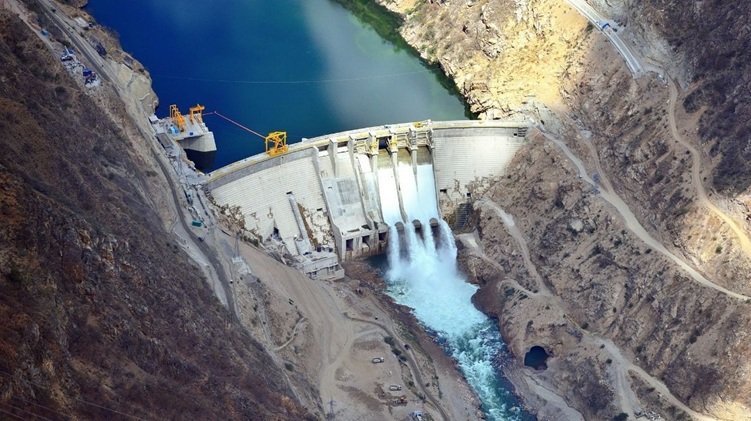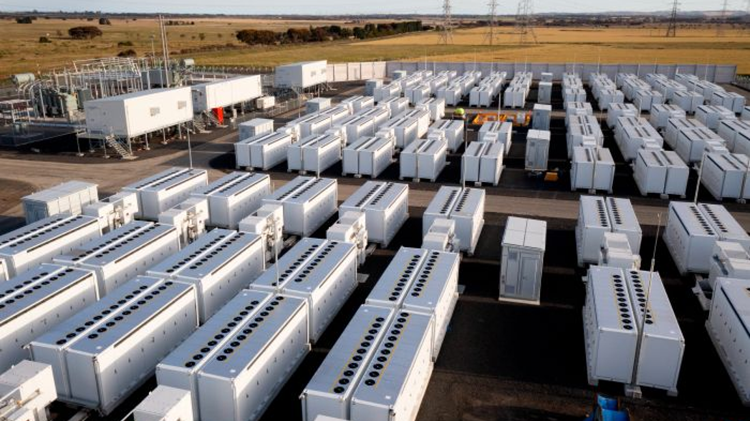The President of the Galician Regional Government, Alfonso Rueda, announced that the Regional Government of Galicia approved today the declaration of the Baro and Greco wind farms as projects with a clear territorial impact due to their economic and social significance, which will allow their implementation outside of the Energy Development Areas (ADE). Their construction will make it possible to supply green and competitive energy to the silicon metal factory in Sabón (A Coruña), and they will be the first wind farms to generate direct socioeconomic benefits in Galicia, as established by the Law on the Promotion of the Social and Economic Benefits of Projects Using Natural Resources in Galicia, better known as the Natural Resources Law.
Since its entry into force on January 1, 2025, the Natural Resources Law has established Galicia’s energy and industrial policy and guaranteed that any project, in addition to being environmentally viable, must ensure the generation of social and economic wealth in the area where it is implemented.
Likewise, the ruling issued last Friday, August 1, by the Tenth Chamber of the Court of Justice of the EU (CCJEU), endorses the processing of the wind farms in Galicia, recalls the importance of streamlining the procedures for granting authorizations that affect the deployment of renewable energy and related infrastructure and is fully in line with the energy policy of the Xunta de Galicia, “in a fair, orderly and gradual manner,” as highlighted by Alfonso Rueda.
But, regardless of this resolution, “the Xunta never stood still,” adopting measures to guarantee the legal security of wind power development and to ensure that these projects have a social and economic impact on our Community, our municipalities, and, especially, on the Galician citizens. Currently, there are 193 wind farms in operation, totaling 4,020.9 MW, and 92 authorized and judicially halted, totaling more than 2,497 MW of power.
First declaration of exceptionality
Thus, the Baro and Greco wind farms, currently under state approval, are the first examples of this energy policy benefiting citizens and industry. Without this declaration of exceptional circumstances, they could not be processed and include measures of social and economic impact on the area where they will be implemented; this is the first declaration of exceptional circumstances issued since the Natural Resources Law came into force.
As the president emphasized, “these wind farms will be able to be installed, and this entails a series of obligations.” Sponsored by Villar Mir Energía (VME), the developer must meet a series of requirements to establish a business in Galicia, including that the energy supply included in the power purchase agreement (PPA) represents at least 80% of the energy produced. It is estimated that the savings on electricity bills over the life of the PPA contracts (10 years) would exceed €13 million, which would facilitate the plant’s competitiveness.
Furthermore, for the first time, as required by the Natural Resources Law, the parks are accompanied by a plan of socioeconomic measures, in this case aimed at the approximately 46,000 residents of the 17 municipalities where the infrastructure is planned to be built.
Discounts of between 150 and 300 euros/year
In the Baro park, the measures will benefit seven municipalities in the province of Lugo: Castro de Rei, Lourenzá, Meira, Mondoñedo, A Pastoriza, Pol and Riotorto, while in the Greco project there will be a total of ten municipalities: six in Pontevedra (A Cañiza, Cerdedo Cotobade, El Covelo, Fornelos de Montes, A Lama and Ponte Caldelas) and four in the province of Ourense: Avión, Beariz, Carballeda de Avia and Melon.
The socioeconomic measures plan has an estimated value of €15.2 million and includes, among other benefits, “significant cost savings,” with annual discounts on electricity and gas bills for residents and also for small and medium-sized businesses located in these areas. Discounts can reach up to €300.
The plan also includes the possibility of participating in the project, with 5% annual interest, as well as a 20% discount on solar self-consumption installations over a five-year period, or zero-interest loans for business initiatives of up to €50,000, among other measures.
Likewise, in the construction of the parks, the developer must prioritize hiring local labor and promote the employment of women and young people. The provision of zero-interest loans for business initiatives is another planned action.
Thus, the new exceptions are authorized based on measures derived from the developer’s commitments to the region and are part of the Xunta’s energy policy, which also incorporates other measures such as repowering, which in the coming years will allow the number of wind turbines in Galicia to be reduced by 80%, from 3,000 to around 600.



























